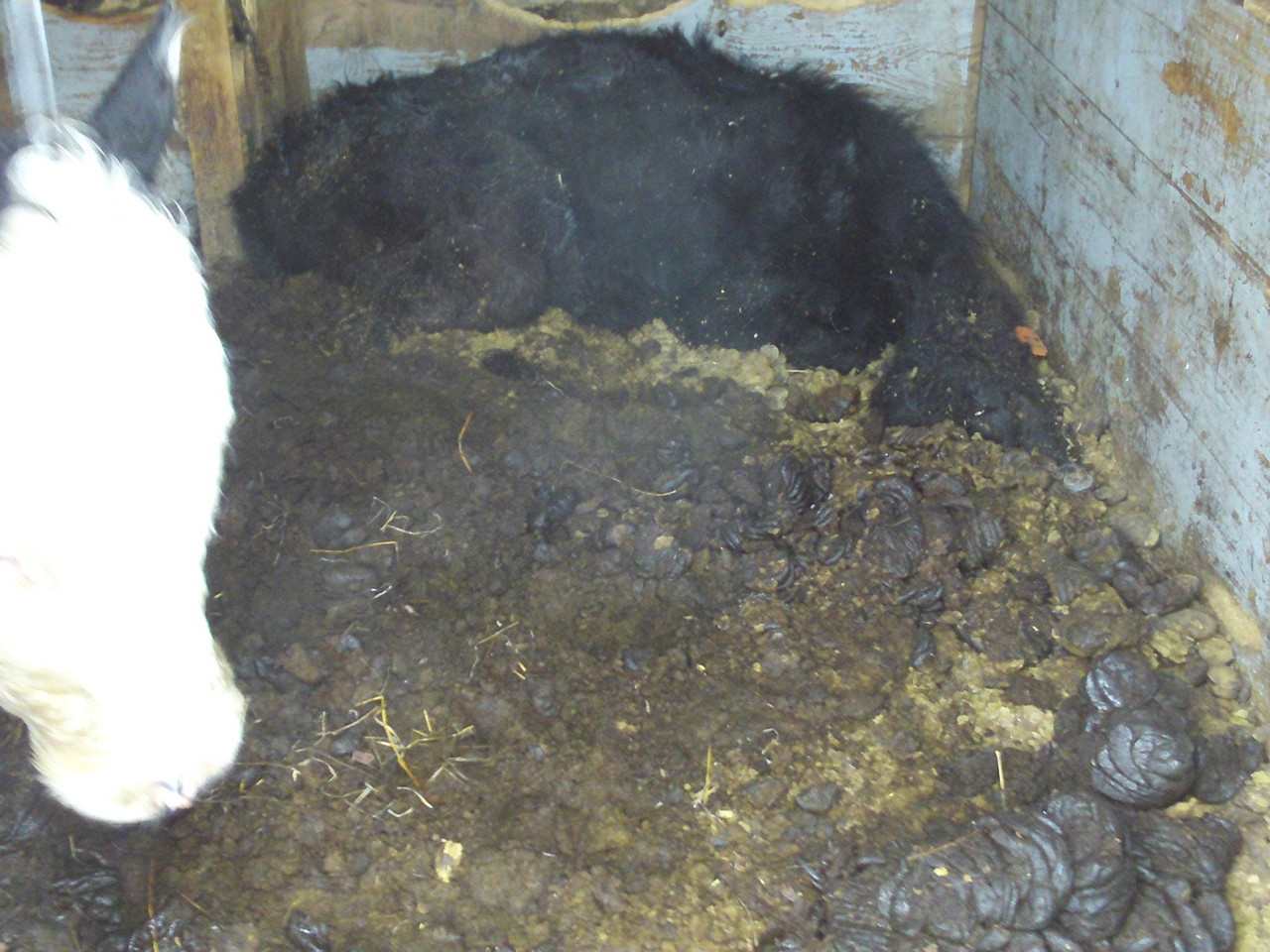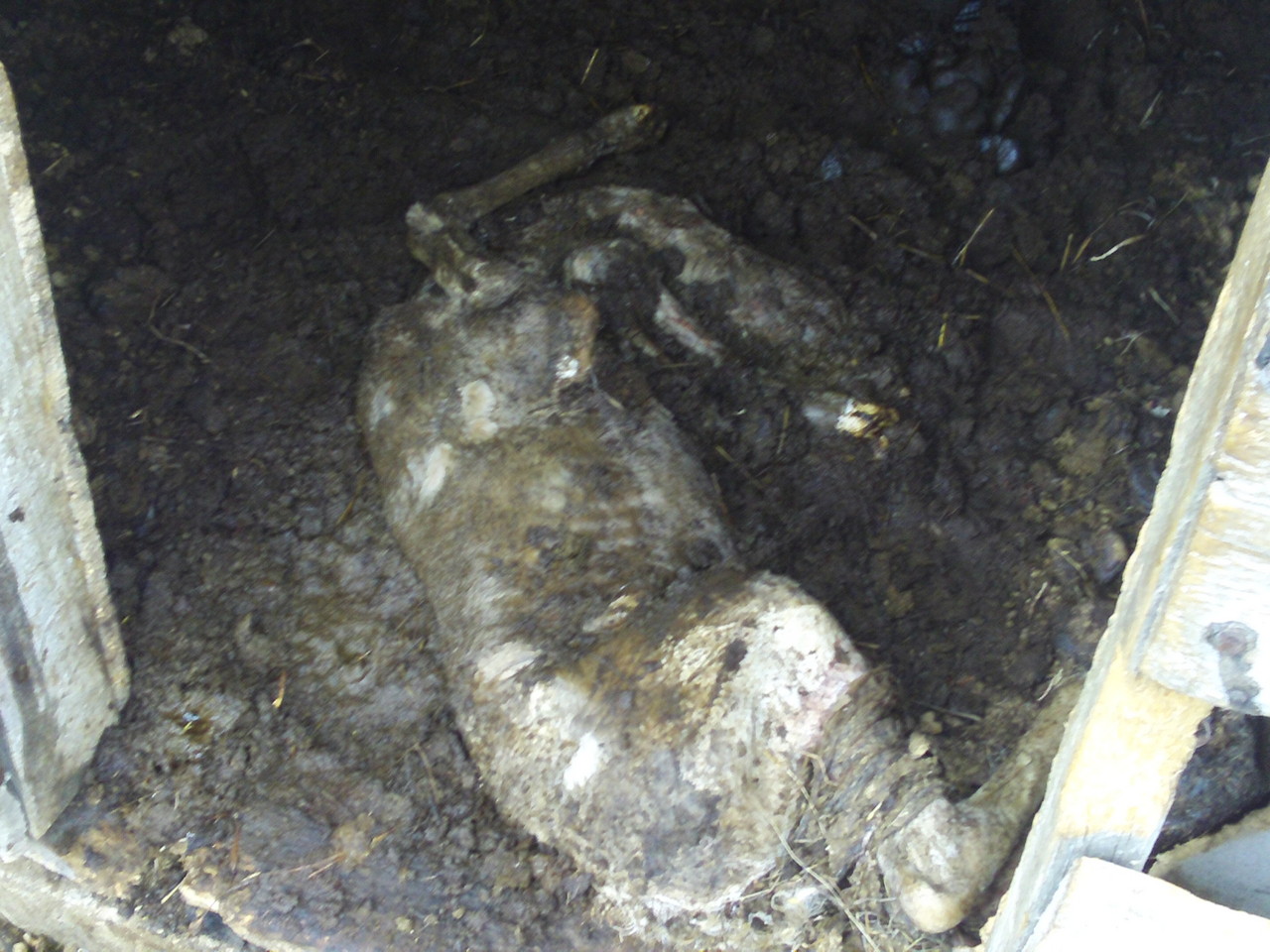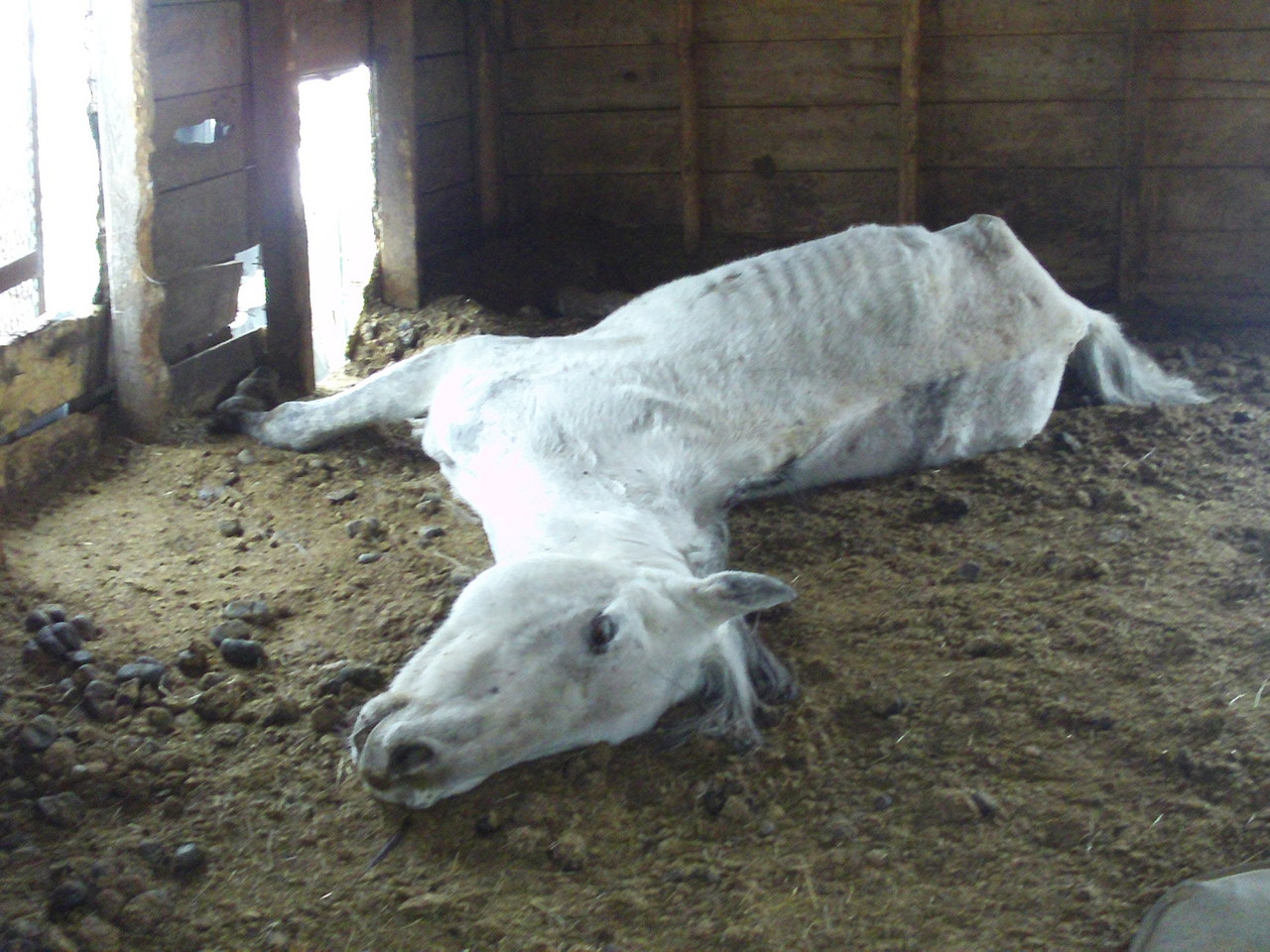Support the Timberjay by making a donation.
Animal deaths under investigation
Whistleblower may be prosecuted for trespassing
A farmstead in rural Tower is the scene of what appears to be a case of shocking animal neglect and abuse by an owner who allowed horses, cows, and goats and other animals to suffer or die in filthy …
This item is available in full to subscribers.
Attention subscribers
To continue reading, you will need to either log in to your subscriber account, or purchase a new subscription.
If you are a current print subscriber, you can set up a free website account and connect your subscription to it by clicking here.
If you are a digital subscriber with an active, online-only subscription then you already have an account here. Just reset your password if you've not yet logged in to your account on this new site.
Otherwise, click here to view your options for subscribing.
Please log in to continue |
Animal deaths under investigation
Whistleblower may be prosecuted for trespassing
A farmstead in rural Tower is the scene of what appears to be a case of shocking animal neglect and abuse by an owner who allowed horses, cows, and goats and other animals to suffer or die in filthy conditions without adequate food or water.
Photos taken by a local resident, who visited the scene with a friend after hearing of the situation, show the bodies of several emaciated animals, including horses, cows, and other smaller animals, most likely goats. Some of the animals, including a dog, cats, and ferrets, were still alive, but were confined in small cages under filthy conditions.
“It’s a horror farm,” said Lisa Anderson, of Tower, who witnessed the situation first hand and reported it to the Animal Humane Society on March 17, the day she visited the site. Anderson said she first learned of the situation from a friend, whose uncle was attempting to purchase the property and noticed that among the covenants of the purchase agreement was a requirement that the buyer dispose of the dead horses.
Anderson, a horse owner herself, said she initially didn’t believe that horses had been allowed to die so she went with her friend, Tawni Martin, of Embarrass, to visit the site.
“We hadn’t walked ten feet before I saw the first dead body,” said Anderson. “It was a white pony, lying dead against an empty water trough.”
There were several other such scenes to come. As the two women investigated some of the small shelter buildings located on the property, they found more dead animals, including a newborn foal still wrapped in its amniotic sac, which was lying in the doorway of one of the shelters.
“I was afraid to open any other doors,” said Tawni Martin. In some of the buildings, manure had engulfed animals that had been dead for a significant amount of time. “There were little feet sticking out of the manure,” said Martin. In other cases, animals lay recently dead atop several feet of accumulated manure.
Among the animals still living, said Martin, was a heavily pregnant mare that looked ready to foal at any time.
In one barn, Anderson found a dead goat confined in a tiny cage constructed of chicken wire and wood. “The cage was no more than 18 inches wide and barely two and a half feet long. There was no way the goat could even turn around, and it had no food or water,” said Anderson. In the same barn, she found a similar cage with two ferrets, also lacking food and water, which she said were forced to “live in their own filth.”
Anderson said the door to the farmhouse was ajar and when she heard a dog barking frantically, she went inside to investigate. “I figured with what I was seeing outside, I could only imagine what has happening inside,” said Anderson. She said the smell of animal feces was nearly overpowering once inside, mostly because cats had defecated all throughout the building. She also found a medium-sized terrier locked in a plastic “clam” kennel. She said the dog, which appeared aggressive, was standing in two inches of accumulated feces. “It’s feet were stained red from standing in the feces and urine,” said Anderson. “It also had no food or water.”
The animals and the property, located on Wiseman Road in Vermilion Lake Township, is owned by Marcia Berg, who no longer lives at the site. Martin said the former farmhouse is falling down and the site no longer has electricity or running water. “So how are the animals being watered?” she asked.
Berg declined to return a phone message from the Timberjay seeking comment for this story. The Timberjay attempted to reach Berg a second time, but the person answering the phone hung up immediately when the reporter identified himself.
Neighbors in the area had previously expressed concern to Berg about the condition of her animals. Dean Coan, who raises livestock nearby, had sold hay to Berg earlier in the year and had stopped out on several occasions seeking payment. But Coan said he never saw anyone present at the property and noticed that the animals did not appear to be well tended. He later called Berg and told her his concerns, but he said she acted defensive about the situation. “She tried to claim someone was poisoning the animals,” said Coan. “But horses don’t get that skinny from being poisoned.”
County sheriff’s
office alerted
County Sheriff Ross Litman told the Timberjay this week that his office was initially contacted about the Berg property on March 4, when a survey crew reported a loose horse in the area. Litman said the deputy who responded to the scene assumed the horse belonged to Berg, since her horses had escaped on other occasions.
He said a sheriff’s deputy went to the scene that day and contacted Berg about the loose animal. He also contacted the Mesabi Humane Society, for advice, after seeing a dead horse in a paddock on the Berg property.
According to Steve Heinrich, with the St. Louis County Sheriff’s Office, the local Humane Society referred him to a local veterinarian for advice.
Ely veterinarian Jen Freking said she told the deputy what to look for in assessing the condition of the remaining live animals. She also suggested he contact Wade Hanson, of the statewide Animal Humane Society, who normally handles serious cases of animal neglect.
But the deputy did not contact Hanson, as Freking suggested. At the time, said Heinrich, the deputy was unaware of the dead animals in other buildings on the property.
Litman said he was not going to second-guess the decision of the deputy involved. “We’re working with the owner of the animals,” said Litman, who said his officers insisted that Berg provide her animals with food, water, and shelter. “We’re insisting that those conditions be met.”
But both Anderson and Martin say they saw no evidence that food and water was available during their visit to the property on March 17.
Litman acknowledged that no one from his office returned to the property to verify that the animals were tended to until March 18, the day after Anderson reported the situation to the Animal Humane Society.
Animal neglect investigator Wade Hanson confirmed to the Timberjay that he was contacted about the situation by Anderson, not by the county sheriff’s office.
The sheriff’s office, following Litman’s interview with the Timberjay, issued a press release stating that they are working with the Animal Humane Society, and which implied that the AHS was contacted by county law enforcement on March 17. The press release does not mention that a county deputy had been to the property nearly two weeks earlier, without contacting Hanson.
“I can’t believe this is happening in my own backyard,” said Anderson, who said she has offered to care for the animals, an offer she said was refused by officials involved.
Two investigations
Sheriff Litman reported that the situation at the Berg property is currently under investigation for possible charges of criminal neglect. County officials were set to decide on Thursday, March 24, whether to remove the remaining animals from the property.
But Litman said his office is also investigating a complaint of trespassing and breaking and entering, filed by Berg against Anderson.
Anderson denies breaking into any of the buildings. The door was ajar at the farmhouse and I knocked before I went in,” she said. In either case, Anderson insisted she’d do it again to protect animals from the kind of neglect and abuse she witnessed. “If they want to charge me for it, go ahead,” said Anderson.
Has legislation
contributed to
the problem?
Around the country, difficult economic times and a nationwide ban on the slaughter of horses for meat, has increased the number of abandoned and neglected horses.
While horse owners were once able to sell animals they no longer wanted or could no longer afford to care for to slaughterhouses, that’s no longer possible, at least in the U.S. In 2007, the U.S. House withdrew funding for federal inspection at horse slaughterhouses, and that essentially put an end to the practice.
Since then, according to many in the livestock industry, the value of horses has plummeted, making it difficult to even give horses away.
“I think it’s contributed to the problem,” said Bonnie Theel, an Embarrass resident and former horse owner.
According to media reports, thousands of horses have been abandoned on public lands around the country, as owners opt for release over having unwanted animals euthanized.











